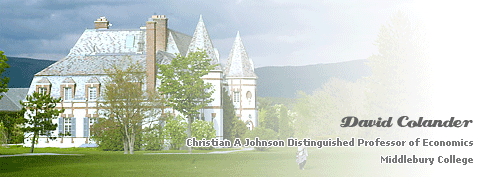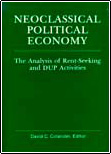Neoclassical political economics is a dynamic new approach to understanding economic policy that integrates the effects of political action and policy into economic theory. It is changing the way we perceive economic history, altering the view of how policy is formed, and redirecting the way economics is now and will be taught in the future.
Evolving from the traditional fields of politics, economic history, public choice, and international trade, neoclassical political economics addresses issues of ideology as well as political influences on economics and economic influences on politics. It provides systematic and practical models for economists, policymakers, and academics.
This volume brings together diverse perspectives from neoclassical economists, public choice theorists, institutionalists, and international trade theorists. Originally delivered at the Fifth Annual Middlebury College Conference on Economic Issues, the chapters in this volume:
- define the arguments of neoclassical political economics
- relate the variety of historical and methodological approaches now coalescing into a new school of economic thought
- present views critical of neoclassical political economics
- consider the problems of modelling
- apply empirical tests to theory
- show new ways of looking at history
- discuss public policy issues
|


